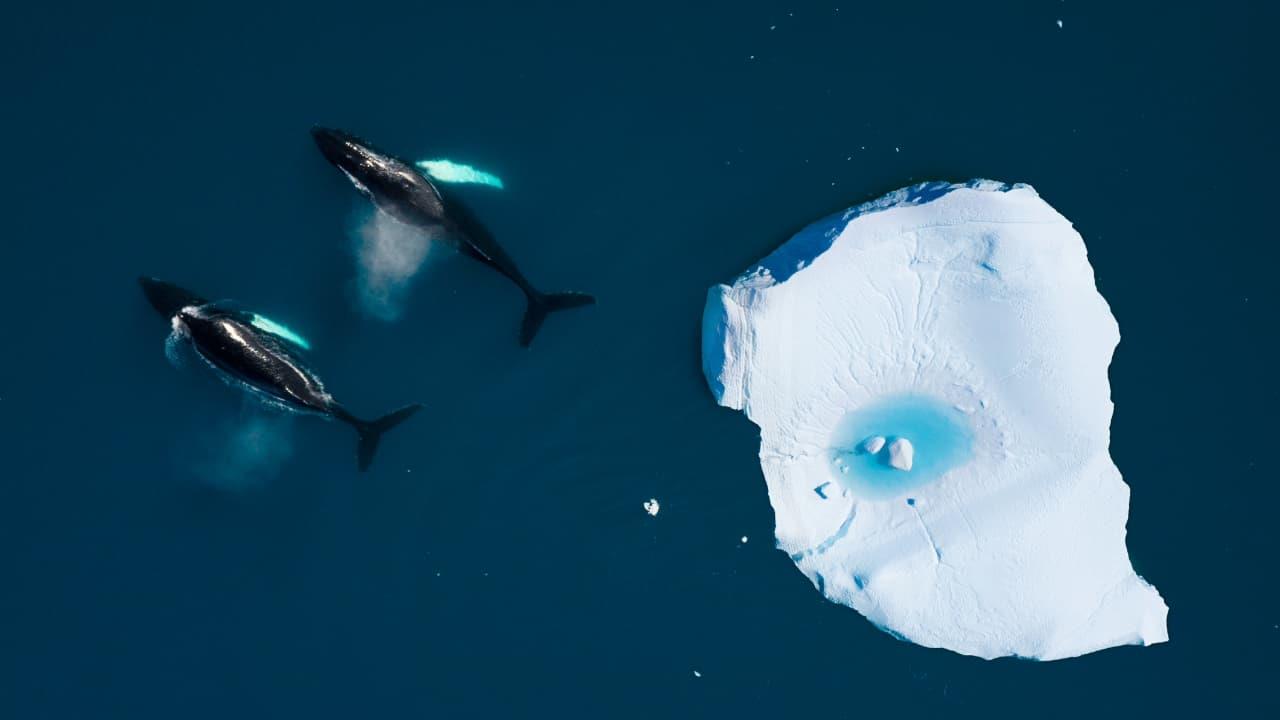
How Marine Heatwaves Are Weakening The Ocean's Ability To Fight Climate Change
New research has found that marine heatwaves can disrupt ocean food chains and reduce the ocean's ability to combat climate change. Marine heatwaves are periods of unusually warm ocean water. The study, published in Nature Communications on October 6, was conducted by scientists from several institutions, including MBARI (Monterey Bay Aquarium Research Institute), the University of Miami, the Hakai Institute, Xiamen University, and others.
The Ocean's Carbon Conveyor Belt
The ocean plays a major role in controlling the Earth's climate. One of its key elements is often called a“biological carbon pump.” Here's how it works: tiny organisms like plankton and bacteria absorb carbon dioxide from the atmosphere and turn it into organic matter. This organic carbon then moves down through the ocean layers as waste or dead particles, eventually sinking into the deep sea. It can remain there for hundreds or even thousands of years. But when marine heatwaves strike, this natural system starts to break down.
Studying Heatwaves in the Gulf of Alaska
The researchers focused on the Gulf of Alaska. This area experienced two major marine heatwaves over the past decade. The first, from 2013 to 2015, was nicknamed "The Blob." The second occurred between 2019 and 2020.
Scientists found that both heatwaves caused significant disruptions to the base of the ocean food web, the microscopic plankton that everything else depends on. These changes had effects on how carbon moved through the ocean. However, the two heatwaves didn't behave the same way.
During the first heatwave (2013–2015), the amount of carbon produced at the ocean surface was high in the second year. But instead of sinking deep into the ocean, much of this carbon collected around 200 metres below the surface. Scientists call this the“twilight zone.”
The second heatwave (2019–2020) was different. In its first year, there was a large build-up of carbon particles at the surface. This suggests that the extra carbon came from waste and decaying matter produced and recycled by marine creatures. This carbon also sank, but only to shallow depths (200–400 metres), and did not reach the deep sea where it could be stored long-term.
The Role of Plankton and Grazers
The researchers believe these differences were due to shifts in plankton populations. Some types of plankton are more efficient at helping carbon sink. Others, especially smaller grazers, produce lighter waste that stays higher in the water or is reused by other organisms. So, when marine heatwaves change which plankton are present, they also change how well the ocean can lock away carbon.
Why Is It Important
Lead author Mariana Bif explained, "Climate change is contributing to more frequent and intense marine heatwaves, which underscores the need for sustained, long-term ocean monitoring to understand and predict how future marine heatwaves will impact ecosystems, fisheries, and climate."
The ocean currently absorbs about a quarter of all carbon dioxide that humans release each year. If heatwaves keep weakening this ability, climate change could speed up. To properly understand these effects, scientists say we need long-term monitoring of the ocean. With climate change making marine heatwaves more frequent and intense, it's more important than ever to track their impacts.
Legal Disclaimer:
MENAFN provides the
information “as is” without warranty of any kind. We do not accept
any responsibility or liability for the accuracy, content, images,
videos, licenses, completeness, legality, or reliability of the information
contained in this article. If you have any complaints or copyright
issues related to this article, kindly contact the provider above.
Most popular stories
Market Research

- Bydfi Joins Korea Blockchain Week 2025 (KBW2025): Deepening Web3 Engagement
- Cregis Joins TOKEN2049 Singapore 2025
- SPAYZ.Io White Paper Explores Opportunities, Challenges And Ambitions In Payments Industry
- Cregis At TOKEN2049 Singapore 2025: Unlocking The Next Frontier Of Adoption
- Space And Time Integrates USDC Payments For ZK Coprocessing To Expand Access To Verifiable Onchain Compute
- Codego Launches Whitelabel Devices Bringing Tokens Into Daily Life



















Comments
No comment